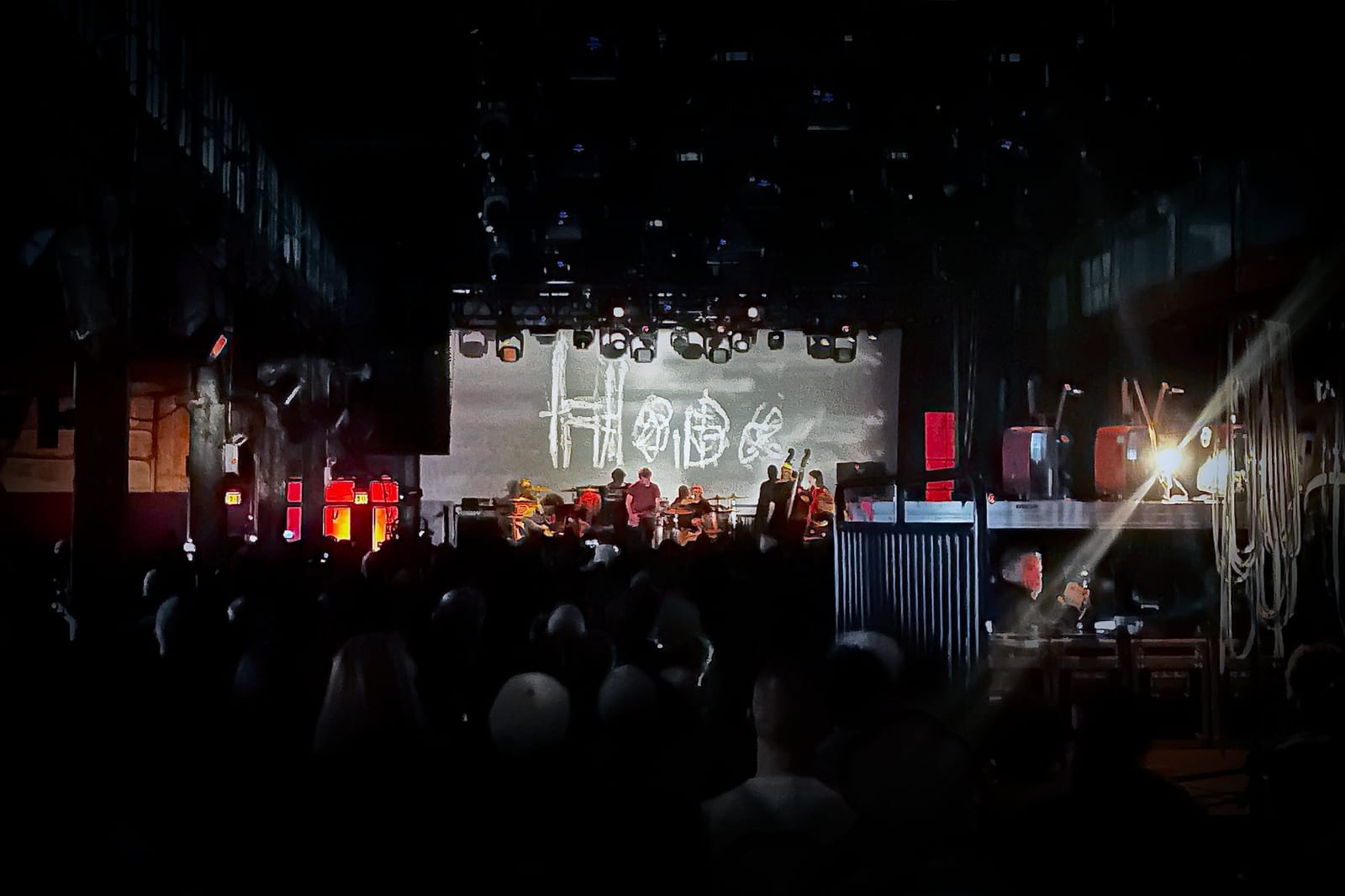The muscle memory of New York is durable. Hopped on the G train and spent the weekend in my old neighborhood, where I expected to get misty-eyed while a montage of memories played in my head. But as I stood before my old building on India Street, I simply thought yep, I lived there fifteen years ago, and it was a nice time, and now it has passed. My neutral reaction disappointed me. Maybe I’ve seen too many movies.
Later that night, the lights went out and a bottomless drone filled the shell of a former glass factory in the industrial zone between Brooklyn and Queens. Then Godspeed You! Black Emperor took the stage. One of my all-time favorite bands, and I had no idea what they looked like. I expected elaborate beards, aggressive tattoos, and maybe cloaks. But they looked normal and sane, like your kid’s cool history teacher. Then came the Biblical guitars, joined by 16mm film loops of flowers and vacant buildings and wildfires and crowds mowed down by firehoses and choking on tear gas. Unlike any other band, their music captures modern dread with hope burning along the edges.
A few hours earlier at the Museum of Modern Art, I visited one of my favorite Francis Bacon paintings, another traveler into glorious nightmares. A few days before that, I came across the phrase mysterium tremendum et fascinans, which belongs to Rudolf Otto’s concept of the numinous, “a non-rational, non-sensory experience or feeling whose primary and immediate object is outside the self . . . whereby the human being finds himself utterly abashed.” The mysterium tremendum repels and reduces us to a sense of “humility, submission, and creatureliness,” while the mysterium fascinansattracts us and generates spiritual joy (and thus feels less interesting, at least for the stories I want to tell). But taken together, mysterium tremendum et fascinans effectively describes the appeal of artists like Godspeed You! Black Emperor and Francis Bacon.
As I left New York City, the driver played Bon Jovi’s “Living on a Prayer” several times and never said a word. I milled around the airport, again trying to make peace with my sweaty palms and wobbly legs. I consoled myself by an elaborate fountain, where I ate a burrito and started the first pages of Tony and Susan, the poorly named novel that inspired Tom Ford's Nocturnal Animals, one of the most frightening and beautiful films I've seen. This line resonated: “It was the habit of his mind to know the worst case, the ultimate. His life was a scenario of disasters that never took place.” Somewhere over Pennsylvania, my fear of heights evened out, and I listened to Godspeed while I admired the lights of civilizations below, glimmering in a sea of absolute black.





